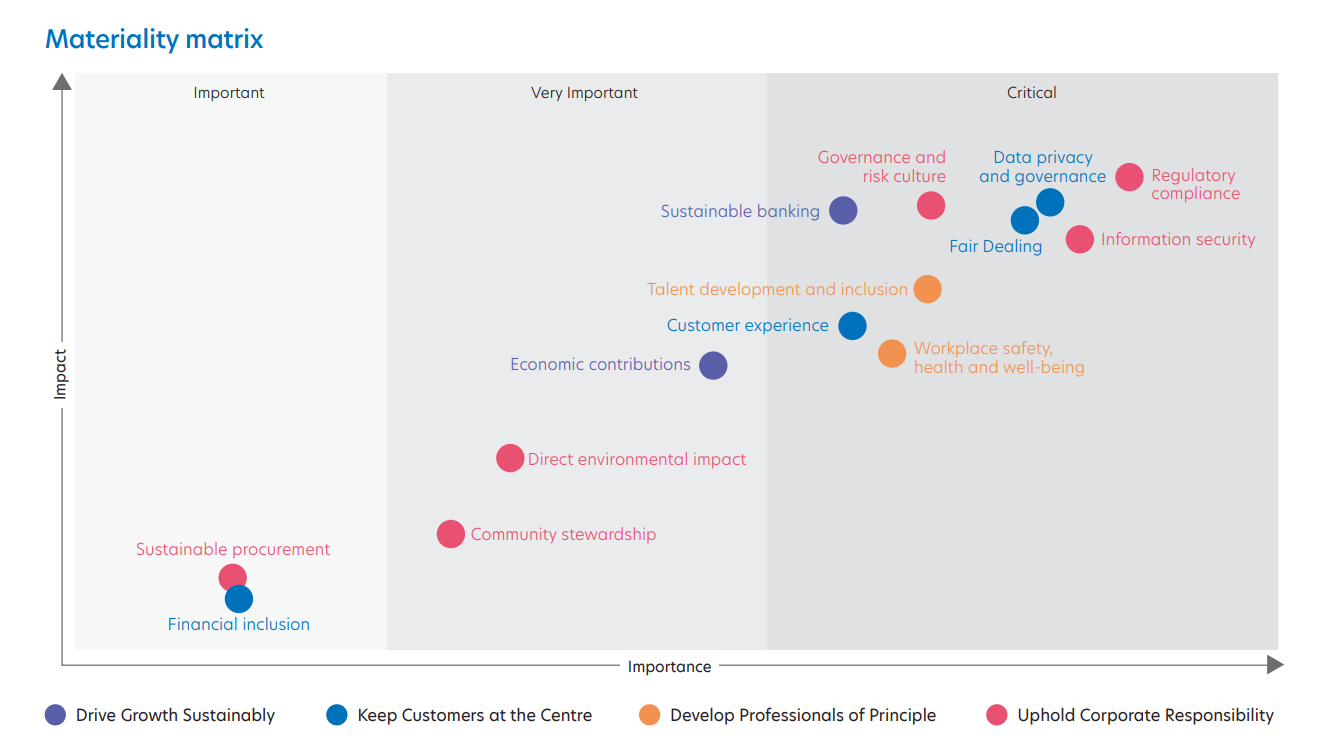
Materiality
UOB Thailand’s most significant impacts on the economy, environment and society are reflected in our material environmental, social and governance (ESG) factors. We conduct stakeholder consultations on a continual basis to ensure that these material factors are in context of our operating environment, business and operations, as well as regulatory and stakeholder expectations

In 2022, UOB embarked on a materiality assessment exercise with key stakeholder groups, both internal and external, to gather their feedback on the ESG factors most important to UOB and that have the greatest impact on them. The exercise adopted an integrated approach of analysing both quantitative and qualitative research to gain a holistic overview of stakeholder expectations.
UOB Thailand then reviewed these ESG factors through consultation with the Sustainability Committee, based on insights gained from ongoing interactions and feedback from other stakeholders. Increasingly interconnected, our material ESG factors inform our strategic decision making and guide us in our practices, stakeholder engagement and reporting.

Material ESG Factors
|
Material ESG Factors |
Priority |
Strategic Objectives |
|
Drive Growth Sustainably |
||
|
Economic contributions |
Critical |
|
|
Sustainable banking |
Critical |
|
|
Keep Customers at the Centre |
||
|
Fair Dealing |
Critical |
|
|
Data privacy and governance |
Critical |
|
|
Customer experience |
Critical |
|
|
Financial inclusion |
Important |
|
|
Develop Professionals of Principle |
||
|
Talent development and inclusion |
Critical |
|
|
Workplace safety, health and well-being |
Critical |
|
|
Uphold Corporate Responsibility |
||
|
Governance and risk culture |
Critical |
|
|
Regulatory compliance |
Critical |
|
|
Information security |
Critical |
|
|
Direct environmental impact |
Very Important |
|
|
Sustainable procurement |
Important |
|
|
Community stewardship |
Very Important |
|







